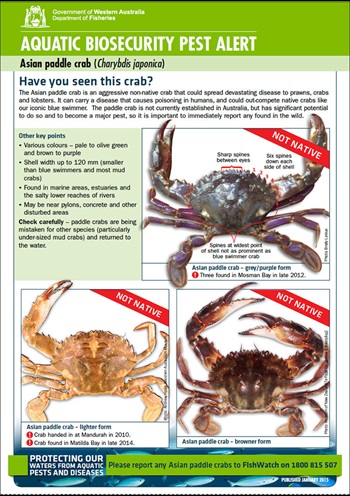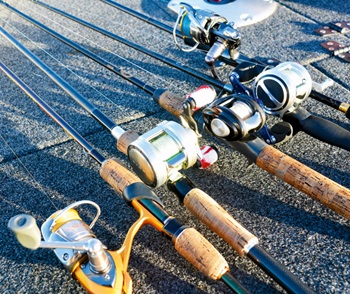Planning marine investment
A 10-year plan prioritising marine science investment for Australia is expected to be finalised by June 2015, and the FRDC has been leading discussion about investment required in wildcatch and aquaculture science and food security.
Preparation of the plan has already involved more than six months of stakeholder consultation and discussion in the scientific community following the launch of the discussion paper Marine Nation 2025: Marine Science to Support Australia’s Blue Economy by the National Marine Science Executive Committee in 2013.
White papers on each of the marine science plan’s eight themes are expected to be finalised this month.
Australia’s marine economy – the ‘Blue Economy’ – is valued at $47.2 billion a year, which is predicted to grow to $100 billion by 2025.
The National Marine Science Plan has eight priority themes:
- sovereignty, security and natural hazards;
- energy security;
- food security;
- biodiversity conservation and ecosystem health;
- dealing with climate change;
- optimal resource allocation;
- urban coastal environments; and
- infrastructure.
More information
Fisheries Research and Development Corporation
Crab alert causes Facebook frenzy

A simple biosecurity alert on an invasive species of Asian paddle crab has led to a record number of views of the FRDC’s Facebook page. The Department of Fisheries, Western Australia, sent out the biosecurity alert to inform fishers that a specimen of Asian paddle crab (Charybdis japonica) had been caught and successfully identified via taxonomic and molecular analysis in late December 2014.
The FRDC posted the alert on its Facebook page.The results surprised everyone, including the Department of Fisheries, WA. In the first 24 hours it recorded 120,000 views and by 48 hours more 250,000 views. At last count the tally was approaching 400,000 views.
The Asian paddle crab is not established in Australia, but has significant potential to do so and to become a major pest, so it is important to immediately report any found in the wild. If you think you have found or seen an Asian paddle crab:
- photograph it – from different angles, and include a scale or ruler if possible next to the specimen, as well as photos of the location where you found it;
- record it – size, colour, how, where and the depth at which it was found, using GPS readings if available, or describe in detail the area in which it was found;
- collect a sample in a plastic bag, refrigerate it or keep it on ice (do not freeze); and
- report it immediately to FISHWATCH, 1800 815 507, or use the WA PestWatch App.
More information
Fisheries WA, 08 9482 7333,
biosecurity@fish.wa.gov.au
A fact sheet and identification guide are available from: Fish WA website
2015 Australian Recreational Fishing Conference

‘Managing our Fishing Future’ is the theme of the third Australian Recreational Fishing Conference, to be held on Saturday 25 July 2015 at the Gold Coast Convention and Exhibition Centre in Queensland.
The conference is being organised as part of the FRDC’s Recfishing Research national subprogram. Coordinator Matt Barwick says the aim is to increase engagement with Australia’s five-million-strong recreational fishing community on national issues of importance, and to identify priorities for further action following the conference.
The event will also celebrate the achievements of individuals and groups within the recreational fishing community through an awards ceremony.
The conference will run in conjunction with the Australian Fishing Tackle Association’s 2015 trade show at the same venue, from 26 to 28 July, showcasing the latest innovations in recreational fishing, marine and outdoor equipment.
Conference registrations will open on Monday 4 May.
More information
Recreational Fishing Conference
Next generation of leaders
The successful candidates for the 2015 National Seafood Industry Leadership Program (NSILP) have been selected. The program operates as part of the FRDC’s People Development portfolio, with gold sponsorship from Sydney Fish Market. Participants this year include:
- Michel Bermudes, hatchery manager at Shellfish Culture Ltd, Tasmania;
- Chloe Clauson, executive officer, Abalone Industry, SA;
- Adam Clow, owner-operator of Southern Cross Fishing, New Zealand;
- Jennifer Cobcroft, research fellow, Institute for Marine and Antarctic Studies, University of Tasmania;
- Johnathon Davey, executive director, Seafood Industry, Victoria;
- Hayley Egan, researcher, Southern Cross University, NSW;
- Darvin Hansen, general manager, Tasmanian Seafoods’ Margate factory, and vice president of the Tasmanian Abalone Council;
- Julian Harrington, project manager, Tasmanian Seafood Industry Council;
- Aaron Irving, executive officer, Pearl Producers Association, WA;
- Rhiannon Jones, fisheries management officer, Department of Fisheries, WA;
- Rachel King, executive officer, Oysters Australia, NSW;
- Robert Langdale, Tasmanian-based fisher;
- Emma Lowe, assistant director, Australian Department of Agriculture, ACT;
- Stephen Mayfield, science leader – fisheries, South Australian Research and Development Institute;
- Suzanne McEnallay, operations manager, Wallis Lake Fishermen’s Co-operative, NSW;
- Veronica Papacosta, director and chief financial officer, Penrith Seafoods, NSW;
- Josiah Pit, operations and supply chain manager, Aquarium Industries, Victoria; and
- Alicia Sabatino, fisheries management officer, Australian Fisheries Management Authority, Queensland.
Funding for NSILP is provided by the FRDC and Sydney Fish Market. NSILP is delivered by Rural Training Initiatives.





